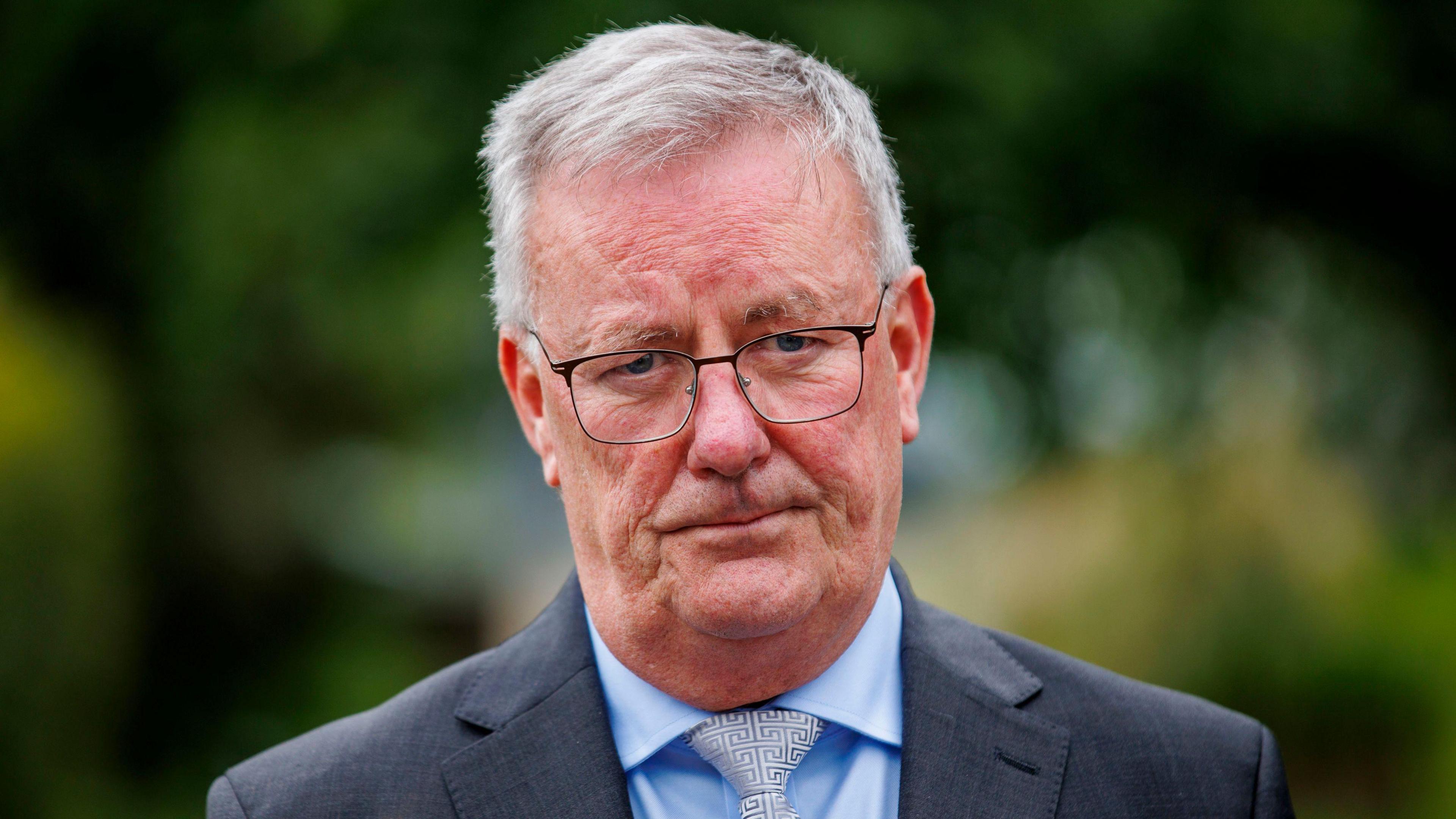Low income care workers 'demoralised' after health minster 'U-turn'
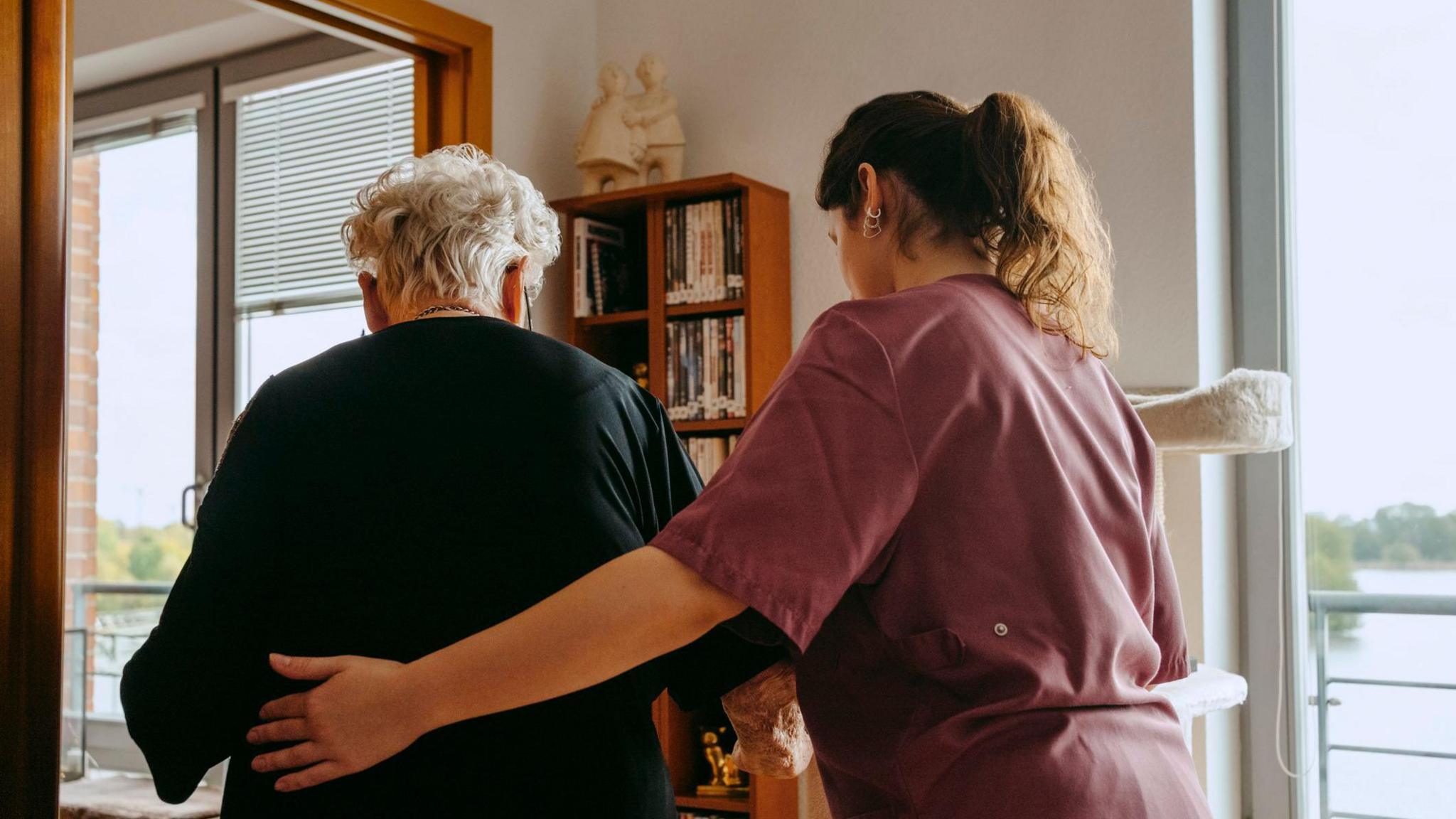
The pay offer, aimed at avoiding industrial action, applied to doctors, nurses and auxiliary staff, but not homecare workers in the independent sector.
- Published
Thousands of care workers face worsening financial insecurity after the health minister "U-turned" on a commitment to implement the Real Living Wage (RLW), according to the chief executive of the Independent Health Care Providers (IHCP).
Pauline Shepherd said staff have been left "demoralised and demotivated".
Last week Mike Nesbitt said doctors, nurses, and auxiliary staff will be given pay parity with colleagues in other parts of the UK, but the offer does not include care workers in the independent sector.
The Department of Health (DoH) said the minister remains committed to funding a Real Living Wage for independent sector social care staff.
In a letter to Nesbitt, seen by BBC News NI, Ms Shepherd said the minister's "disappointment" at not being able to include social care staff was a "serious understatement".
She added that social care workers expectations have been repeatedly raised by Nesbitt, including telling staff in 2025 they would be paid the RLW from September, and that the ramifications of "going back on this publicly made commitment to the social care workforce are wide-reaching and go far beyond disappointment".
There are approximately 24,000 independent care home and home care (domiciliary) staff in Northern Ireland, about 11,500 of those work in care homes.
The social care workforce is the lowest paid across the health and social care system.
Staff deliver over 80% of social care in Northern Ireland, mainly domiciliary services at home and within care facilities.
In a statement, Nesbitt said he is "fully committed to resolving all our pay issues going forward and to funding the RLW at the earliest affordable opportunity", adding that "as and when this uplift is possible it will be my intention to ensure that the funding is ring fenced, allocated transparently and with clear timing".
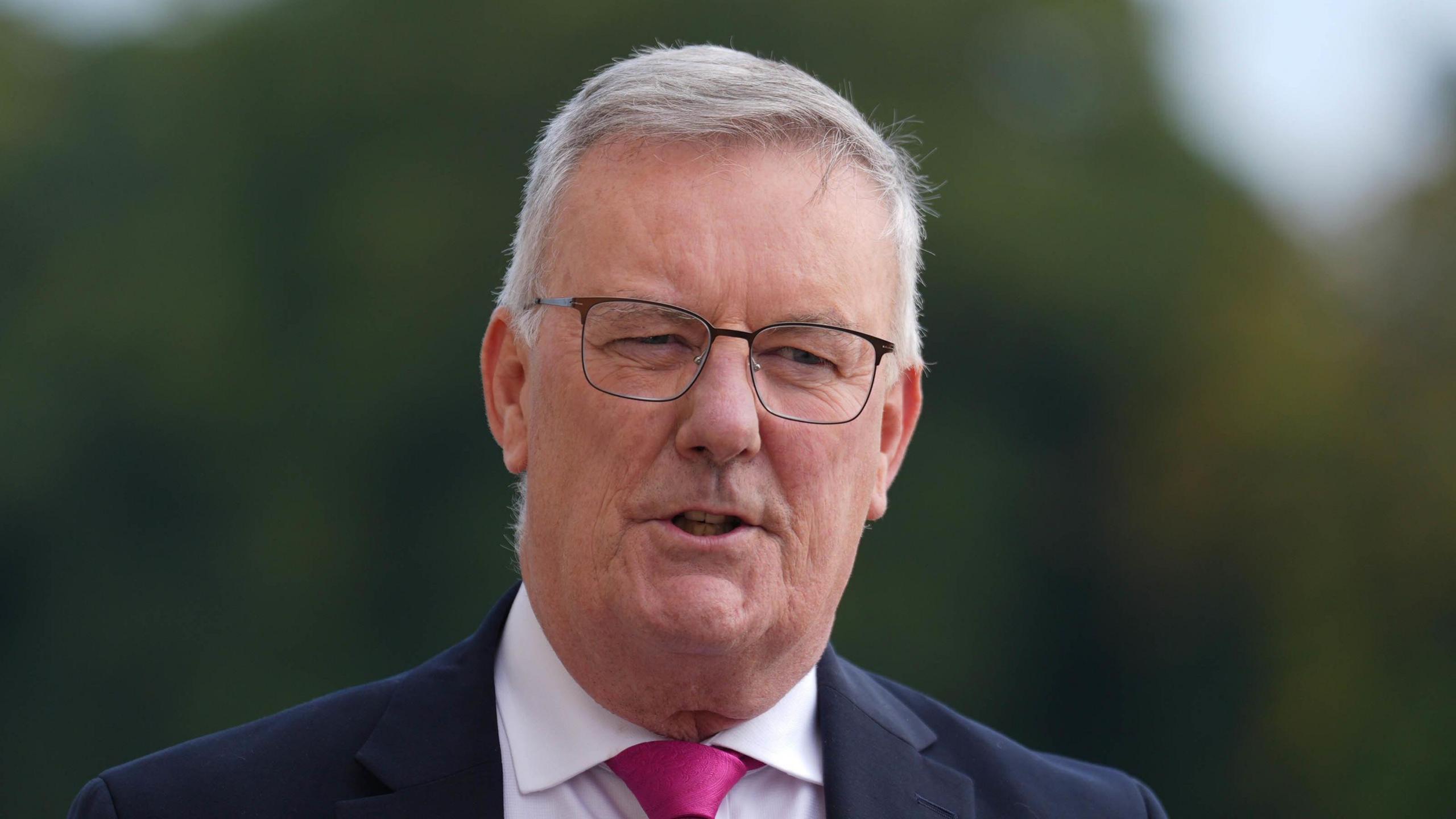
Heath Minister Mike Nesbitt has been accused of repeatably raising the expectations of social care workers
According to the IHCP, providers find it "very difficult to recruit and retain staff" due to competition from other employers, such as supermarkets, which advertise jobs at a higher hourly wage.
Ms Shepherd said her members, 94% of whom are women, have felt demoralised and undervalued for number of years, and this latest move is a further blow to their confidence.
"Many are young mothers, single parents, or primary carers in their own families and will now be entering Christmas with no pay uplift, having to deal with heavier winter rotas and higher energy and childcare costs, this is unfair.
"This sector which is often lifesaving cannot compete with retail and hospitality that often offer more stable income and predictable hours."
In the letter, she said members support fair pay for all NHS staff, but said the decision to award nothing from the entire NHS pay-review uplift of £209m to the independent social care workforce is "indefensible".
In recent years, the DoH has publicly said that pay discrepancy between health care workers must be addressed and be resolved.
In February, Nesbitt told the health committee that the RLW would be funded and that money had been identified to begin delivering it for independent social care workers.
In July, the Health and Social Care NI Reset Plan said the system needs to be stabilised and committed an investment of an additional £25m in the independent social care sector to support the introduction of the RLW building on the previous year's investment of £70m.
In December 2022, senior health officials told the Stormont health committee that "all-new domiciliary care procurement would be required to reflect the RLW uplift. Also, the procurement policy states that all future social care contracts would be built on the RLW."
The DoH established a Fair Work Forum to address low pay in social care and in September a business case was established.
According to Ms Shepherd, all these moves and public commitments have given false hope to staff who are mostly women with many single-parent families.
Related topics
- Published2 days ago
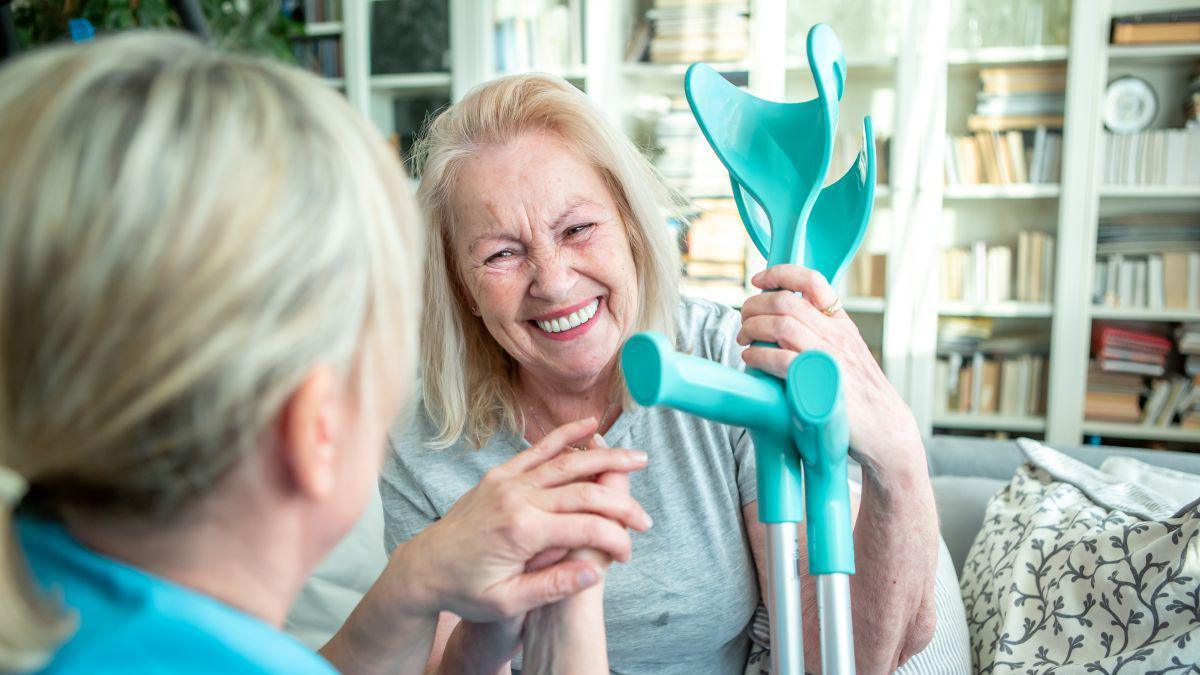
- Published6 November
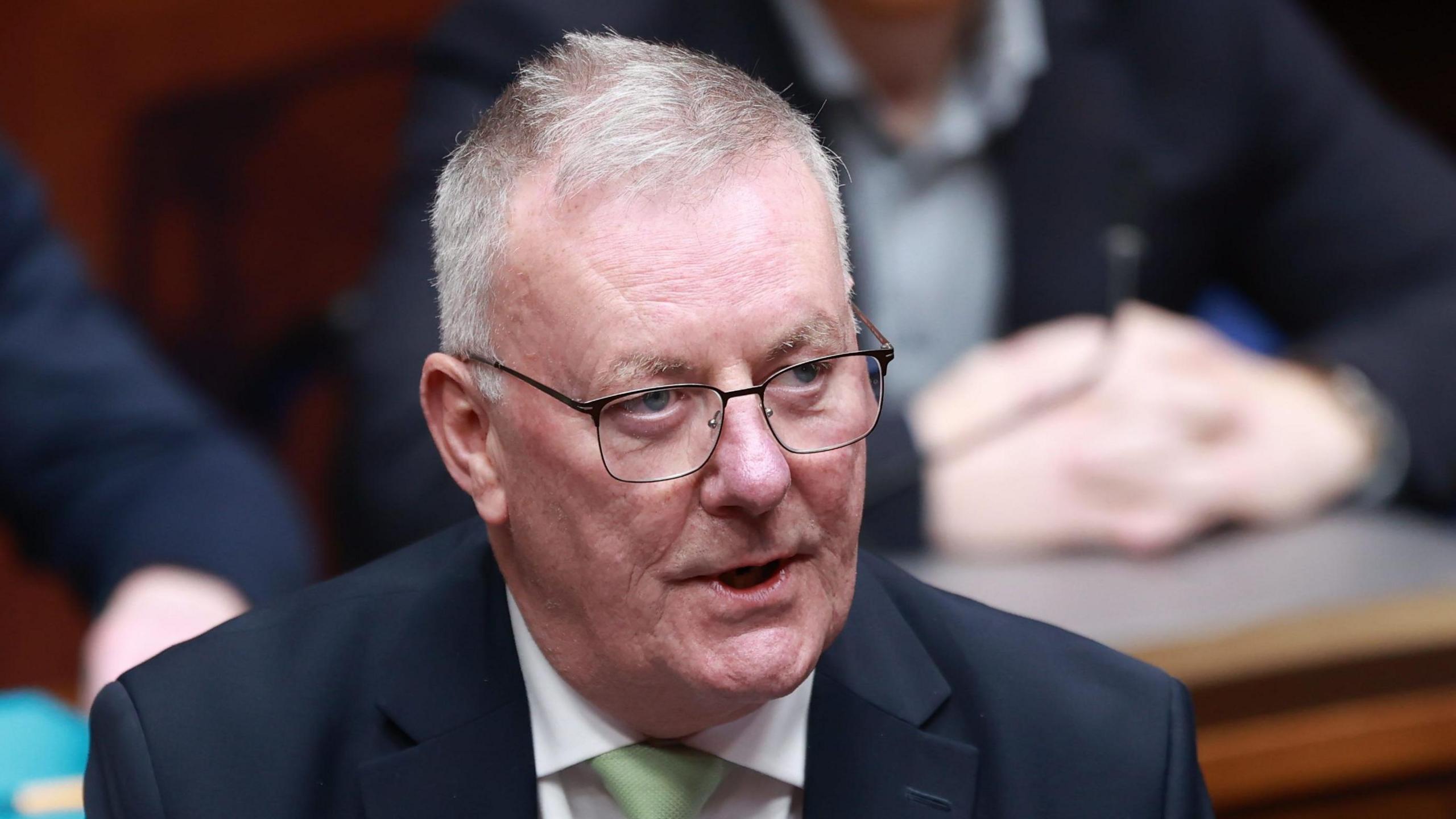
- Published16 October
